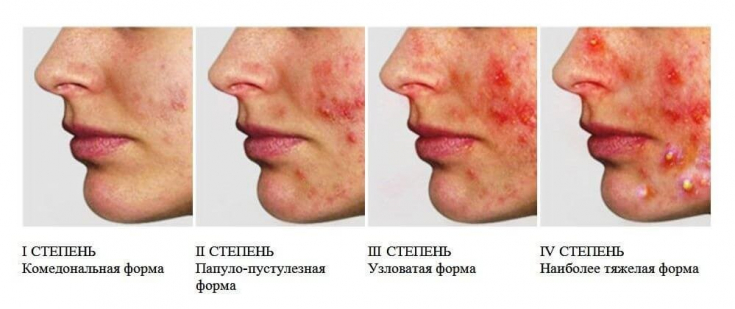Pathogenesis acne – it is multifactorial, during which the synthesis of androgens and sebogenic hormones plays an important role. Given the effect of some types of contraceptives on hormonal signaling pathways, the choice of contraceptive method may affect the prevalence of the disease and severity of acne in women. However, according to a recent study, acne can also be a reason to discontinue contraceptives, which can have very different effects on the disease in different forms.
The link between acne and contraception: a study
A retrospective cohort study was conducted in women who were prescribed contraceptives according to the Data Optim Clinformatics Data Mart.
The study assessed the incidence of acne during the first year after starting hormone therapy in girls/women aged 12-40 who were taking contraceptives for the first time and had a history of acne.
Based on the mechanism of action contraceptive drugs, scientists have suggested that combined oral contraceptives will have a positive effect on the course of acne, intrauterine copper coil – neutral effect, progestin preparations, intrauterine device with levonorgestrel, implant with etonogestrel negative will affect the course of acne.
Read also: What medications can cause drug-induced acne
Comparative characterization was carried out and the association of various methods of contraception, such as combined oral contraceptives, copper intrauterine device and levonorgestrel intrauterine device, with clinical features of the development and severity of the disease was determined.
Follow us on Instagram!
Investigators also assessedthe severity ofacne and the need for topical therapy and oral antibiotics of the tetracycline class during the first year taking contraceptives.
Contraceptive methods and acne incidence: resultsThe study involved 336,738 women. Among the total number of contraceptives prescribed by them
82.9% constituted COCs, 10.6% - IUD with levonorgestrel, 2.1% - copper IUD, 1.9% - implant with etonogestrel and 1.3% -progestin preparations, 1.2%-DMPA injections.
Read also: Acne in women of reproductive age: features of the disease
Acne has been reported in2-8% of study patients, predominantly among young adults.

Scientists analyzed the effects of
combined oral contraceptives, progestogens, etonogestrel implant, DMPA injections, non-hormonal copper intrauterine device, and levonorgestrel intrauterine device, and compared impact of their effects on the incidence and severity of acne.
The useof Intrauterine copper coil was associated with the use of topical and oral tetracycline antibiotics during the study. Compared to taking COCs, in patients with an installed intrauterine copper coil the risk of developing clinically significant acne increased by 14%
. Against the background of the use of an intrauterine device withlevonorgestrelthe risk increased by 9%.
Follow us on Facebook!
The risk of acne when using contraception was higher among patients switching from using combined oral contraceptives to other methods, compared with the same indicator among patients using COC for the first time for one year. Read also:
Topical retinoids for acneThus, it becomes clear that, compared with the use of an intrauterine device, taking combined oral contraceptives has
a moderate protective effect regarding the frequency of occurrence, severity of acne, and also reduces the need for antibiotics. However, the difference in percentage
between these two methods of contraception is not so great.More interesting stuff on our YouTube channel:







Add a comment